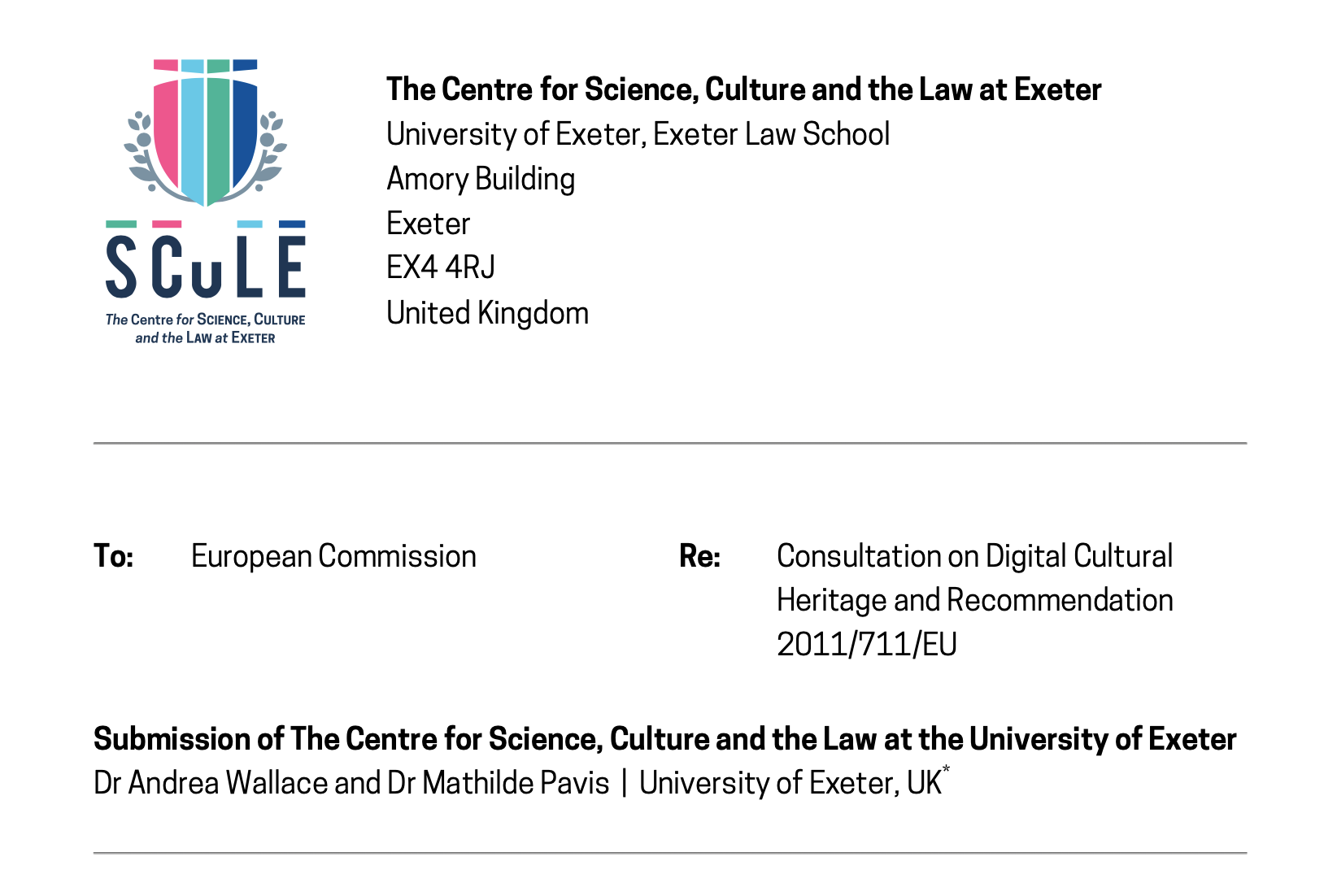The Centre for Science, Culture and the Law at Exeter published a Response to the Consultation on Digital Cultural Heritage and Recommendation 2011/711/EU launched by the European Commission. The Commission’s aim is to ensure that the 2011 Recommendation on the digitisation and online accessibility of cultural material and digital preservation still addresses the challenges posed by the digital transformation in the cultural heritage sector.
The submission to the European Commission, written by Dr Andrea Wallace and Dr Mathilde Pavis, points out that the implementation of the 2011 Recommendation can be expanded in the following areas:
- Clarifying the scope and obligations around media generated during the reproduction of public domain heritage (e.g., open access, IPR management and licensing).
- Limiting the scope and obligations around digitisation and open access in respect to collections in Europe acquired during and after periods of colonisation.
- Developing the necessary infrastructure to provide sustainable financial, practical and legal support for digitisation and digital transformation processes going forward.
The Response argues that any future Recommendation must bring clarity to the appropriateness of licensing and IPR management for digitised public domain material to increase legal certainty around cross-border reuse. This could be achieved by requiring GLAMs to apply the Creative Commons Universal Public Domain Dedication 1.0 tool (CC0) to reproduction media generated around public domain works. The legal code of the CC0 tool expressly recognises and accounts for legal uncertainties between different copyright regimes. The authors highlight that applying licenses to reproduction media is appropriate only when a valid copyright arises. This is increasingly unlikely following the implementation of the 2019 Copyright in the Digital Single Market Directive.
Wallace and Pavis also assert that exceptions included in the 2019 Open Data Directive can frustrate some of the goals of the 2011 Recommendation and future revision. These exceptions allow digitisers of public domain works to reserve valuable primary materials generated during the digitisation process for their own commercial purposes. New sustainable and adequate financial support with open access obligations is therefore crucial to offset the need to generate revenue through commercial licensing models. Moreover, to increase reuse certainty for users, the Commission should also align references to ‘open access’ with international initiatives qualifying the material based on its commercial reusability.
Finally, the authors assert any new Recommendation should dissuade digitisation, open access or IPR commercialisation of material gained during and after colonization without the consent of the communities of origin. Related to this, a new Recommendation should also encourage the repatriation of digital and/or IPR materials associated with these material collections. This includes adapting approaches towards privacy and confidentiality having in mind the potential impact of networking cultural heritage data with big data.
Wallace and Pavis highlight the crucial need for greater financial, practical and legal support to ensure wider implementation of the 2011 Recommendation or any new obligations. Such support should aid the digitisation and management of cultural heritage and explore new opportunities around open access models. This must extend to practical support for capacity-building and training on the technical and legal knowledge required for digitisation and digital transformation.

